Farid Minigulov, Kazanorgsintez: We do not plan layoffs. We will take on staff for new factories
Why the tax manoeuvre for Russian petrochemical enterprises may be more dangerous than the international sanctions.
Having reoriented the delivery of goods on the domestic market, Kazanorgsintez PJSC, one of the largest chemical enterprises of Russia, sharply reduced the export in 2014. A favourable price situation allowed the company to improve financial results of the year. However, 2015 was not easy for both the enterprise and all petrochemical sector of Russia. Despite this, as Farid Minigulov, the director general of Kazanorgsintez PJSC, stated in the interview with Realnoe Vremya that there is no intention to refuse of the development of the enterprise.
'In principle, the sanctions don't influence our activity'
Mr Minigulov, now some conclusions may be drawn. Could you characterize last year's result of Kazanorgsintez concerning industrial and financial aspects? For instance, the capitalization of the company increased by 16,2% reaching $445,8m…
As for the industrial aspect, we worked well, almost at the level of 2013 and, speaking about the financial one, the situation is even better. Several factors influenced at the same time. The prices for the production rose due to, firstly, a very serious manufacturer, Stavrolen, which stopped producing. Another factor is that the dollar shoot, respectively our rivals' import production became very expensive too. It enabled to substitute the import that dropped out.
What is the growth in percentage terms?
About 20-25% in different types of products. Some of them reached 30%.
Is it the best dynamics on the petrochemical market?
The dynamics is good. It was better in 2012 when Stavrolen stopped in Budyonnovsk, and a sharp increase was observed. It has a transient effect. Last year prices for polyethylene didn't ramp up to the level of 2012, but the prices were good, so that they might influence the improvement of financial indicators. To tell the truth, this growth of the domestic consumption is short-term. 'Stavrolen' is going to launch the production in April. This is why there will be some adjustments regarding the slump in prices.
How much did the factory reduce the export as a result of import substitution?
Kazanorgsintez traditionally delivered about 80% of its production to the domestic market. Last year the export decreased from 20-25% to 7-8%. And it refers to almost all export products.
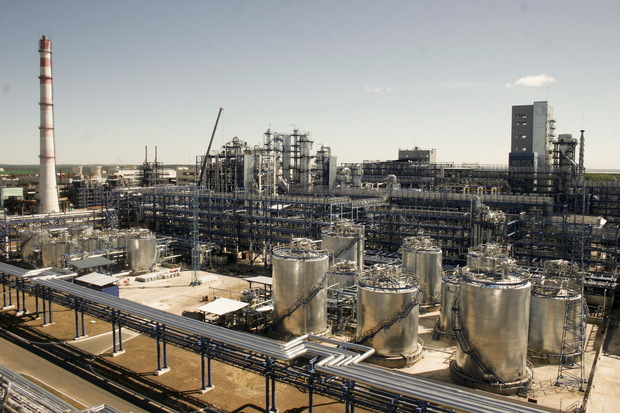
Is this tendency maintained in 2015?
This tendency is maintained. The only thing is that export became quite profitable for the petrochemical enterprises, including ours, owing to the change of rates of dollar and euro. At this moment, we increased a bit the export but did not reach the level of 2013.
What is the influence of the world sanctions that you perceive as regards raw material supply, components and equipment?
We didn't feel a strong impact. There are some problems with some spares and equipment we bought in Europe. Now it has become more difficult to arrange documents, we have to prove that the products we buy are not dual-purpose goods, that they cannot be used for defence equipment production. Here it refers to high technological products. Due to this fact, there is a delivery delay. In principle, the sanctions don't influence our activity.
More raw material
Your report on the tax manoeuvre was quite critical. It relates to benzene that Kazanorgsintez uses to produce phenol and acetone. This product is included in the list of petroleum products issued by the Ministry of Finance of the Russian Federation that offers to subsidize with the scope of the tax manoeuvre.
It relates to benzene and raw material that we get from Nizhnekamskneftekhim – ethylene. Yes, there is a compensation mechanism, which in a certain way improves the matters. But then a structural problem arises. The problem is that refined oil products can become more expensive because of the tax manoeuvre, so the very product may simply not be produced. Today petrochemists and petroleum refiners have serious problems. What is more, the situation will worsen. The tax manoeuvre probably is a necessary tool for the government, but it is a big problem for the whole sector. It can lead even to production shutdowns. It affects us indirectly. We don't have such big volumes of raw materials for petrochemical products. But those who consume this raw material on a large scale will have problems.
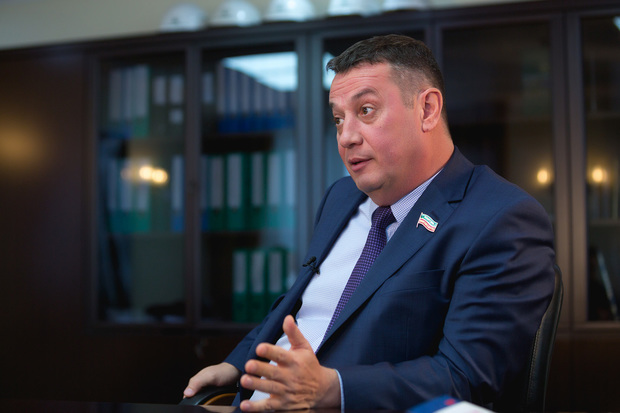
In January at the meeting of Tatneftekhiminvest it was noted that last year Kazanorgsintez had problems with raw material. Due to this problem, a high-pressure polyethylene production was reduced.
Polyethylene is a very profitable product, so ethylene, which is used for polyethylene production, became deficient too. There is an ethylene 'ring', a pipeline that connects five points: Kazan, Nizhnekamsk, Ufa, Sterlitamak and Salavat. Ethylene is actively consumed everywhere, which they then use to make other products. This explains why raw material deficit appeared. Planned for this year, volumes aren't delivered, for this reason, the production was reduced.
Has the situation changed this year?
A bit. We need to produce more ethylene. We manufacture ethylene to the maximum, but our ethylene consuming enterprises are underloaded because they are designed for ethylene delivered by ethylene line.
What problems do other ethylene producers have? Why cannot they increase the production?
We produce less ethylene than ethylene consuming enterprises demand. There is a need to implement the new ones.
No sequestration
As for capacities, now the 'Plan of Principal Investment Events of Kazanorgsintez PJSC for 2013-2016 on activity stabilization and maximum load of productive capacity' is carried out. What units do you plan to launch in 2015?
This year we plan to launch two units. It is a new high-effective double-chamber furnace pyrolysis that uses ethane as raw material. We arrange to put it into operation in September. The projects will enable to reduce the consumption of ethane for ethylene production and provide the total ethylene production. It is planned to increase ethylene production by 30,000 tonnes. In addition, we launch a production of an additional low-pressure black polyethylene in the factory. Black polyethylene is used to produce pressure pipes (in general, for water system), film used for hydro insulation film production for swimming pools, wells and reservoirs. Film made of black polyethylene is also applied in installation of thermal insulation of roof and hydro insulation of foundations and undergrounds. To day, we produce about 160,000 tonnes of black polyethylene per year; as a result of modernization we will manufacture 220,000 tonnes.
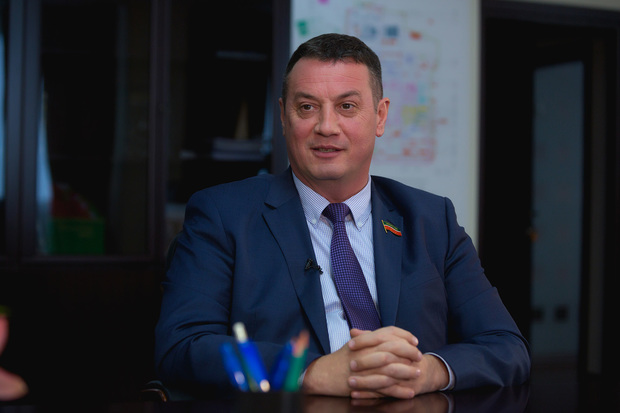
What is the volume of the investments of these factories?
1bn rubles in pyrolysis furnace and 1,2bn rubles in black polyethylene production.
Today many companies revise their investment programmes and reduce them. Is Kazanorgsintez going to do the same?
We don't revise our programmes.
What is the amount of the financing of the Plan of Principal Investment events for 2013-2016?
The total amount of 2013 was approved, and it is equal to 6,2bn rubles. This sum, dive or take, is maintained. Now there may be some adjustments due to еру changes of ruble and euro rates.
Are you going to sequestrate the programme?
No.
It was informed that the work on the development of the investment programme for the further step of the development of the enterprise is carried out. And it presupposes a realization of investment programmes on the creation of new productive capacities and increase of production volumes of commercial commodity till 2020. Could name its parameters?
We work at this programme. Now it's still early to name its parameters. We need to create new factories, new products and modernize the old ones.
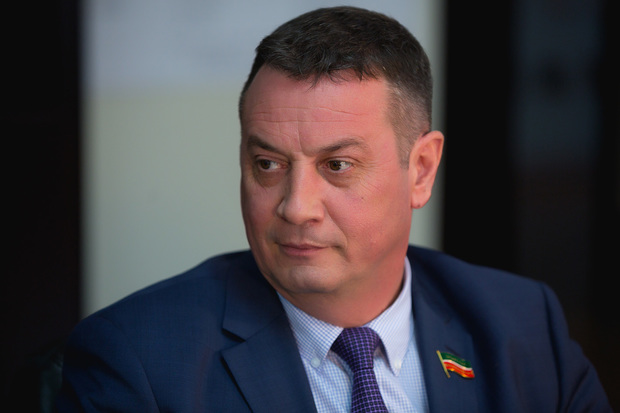
'We will pay everything off'
What are the sources of the modernization?
It's our own funds. There is a source for all investments – a positive cash flow of an enterprise or profit. Generally speaking, it is spent on amortization of loans and investments. And spare funds are net profit. We have serious IOUs, most part of them we paid back, but we still have some debt. So, we economically cannot afford ourselves considerable investments during this period. At this moment, we need to pay off all debts, pay interests for debt service, and only then we may invest money. The Programme of Principal Investment Events from 2013 till 2016 doesn't include big investments like last year. However, it allows to improve the economy of the production and rise its stability. For instance, last year a very serious programme on stabilization of energy supply was fulfiled. In fact, we got rid of 80% of problems on energy supply.
As for the serious debt load, do you mean the debt to Sberbank?
Yes, more than a half of the debt is paid off.
Does Kazanorgsintez need to amortize $100 million of Eurobonds in March?
We already did it.
Consequently, you managed to stabilize the situation of the exorbitant debt of the enterprise.
The entire factory worked at it. A serious part of the debts is amortized. But we still need to pay Sberbank about 12bn rubles.
Anti-crisis measures
During the crises, it is said about new opportunities that are opened for the business. For example, some participants of the petrochemical market suppose that the sector of polymers can become one of the vanguards of the Russian economy. Do you agree with this statement?
I don't know. I have doubts concerning the vanguard. It is a fact that polymer consumption in the country grows. To take an example, for the last 10 years, it increased by 2,5-3 times. It means that capacities grow too, enterprises modernize. New factories appear as well as new products. I don't see any direct link between the vanguard in the person of the polymer market and overcoming the crisis.
What do you expect in today's difficult conditions?
The crisis is conditioned by several reasons. Indubitably, the sanctions caused problems. But the biggest problem is the impossibility of our banking system to attract foreign investment resources. Financial resources became practically unavailable for all enterprises: big, small and medium. New investments and projects are impossible (90%) to realize in today's conditions. The profitability of a good project is 15-20%, no more. If our credit resources are at 25% per year, what is the point? Realization of projects simply loses its significance. The government should think of it and solve the problem.
Does Kazanorgsintez has its own anti-crisis programme?
Undoubtedly. From the very beginning, when these problems appeared, we worked out this plan. But an anti-crisis plan is always simple. The main goal is to reduce expenditures, unnecessary expenses that don't influence the production.
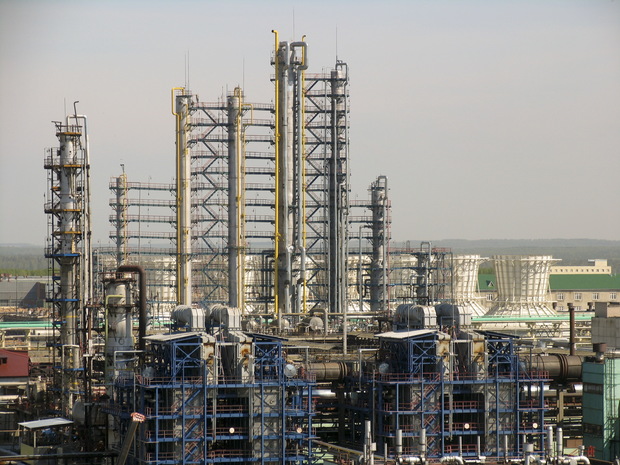
The anti-crisis plan is approved at federal level. The programmes on the support of the enterprises are elaborated by ministries. How is Kazanorgsintez going to participate in these events?
We have events on import substitution. There are chemical products that are necessary for oilmen and gas workers. They have problems – delivery of some components used in boring and oil extraction is forbidden. We are looking for possibilities to substitute these components and substitute their production in 'Kazanorgsintez'.
You are like the head of a small town with over 8,500 people working. Are you going to lay the staff off?
We don't plan layoffs. We will take on staff for new factories. We think about the transition of some subunits to outsourcing. There are some negative examples of such an experience. We take small steps in this direction and see what happens. But there will be neither layoffs nor workforce optimization.
What might make you do it?
A difficult financial situation.
Could you make a forecast for the petrochemical sector of Russia in 2015?
It is difficult to forecast for the entire year. The situation is complicated. Many aspects depend on the world markets, firstly, on oil prices. They influence the state of our financial and economic system. And the tax manoeuvre is important as well.